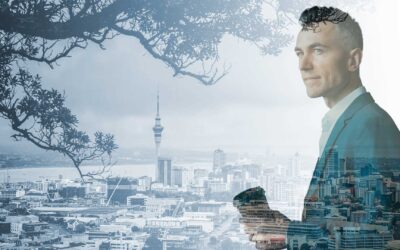Johannesburg: A Business Traveller's Guide
your complete introduction to the business capital of South AfricaTravelling to Johannesburg?
Are you planning on travelling to Johannesburg for work? Get to know South Africa’s largest city in this comprehensive guide for business travellers.
Nestled on the high plateau of the Highveld region, some 1,700 m above sea level, Johannesburg (often called Jo’burg or Jozi) is South Africa’s economic powerhouse. Founded in 1886 following the gold rush, it quickly grew into a magnet for commerce, drawing people from across the continent.
Today, it’s the beating heart of South African finance, mining, media, and innovation, and a gateway to the wider African business landscape.
In this guide, we take you through navigating Johannesburg’s unique business ecosystem, share practical tips for getting around, and highlight our top 3 things to see or do to make your trip unforgettable.
Johannesburg Fact File
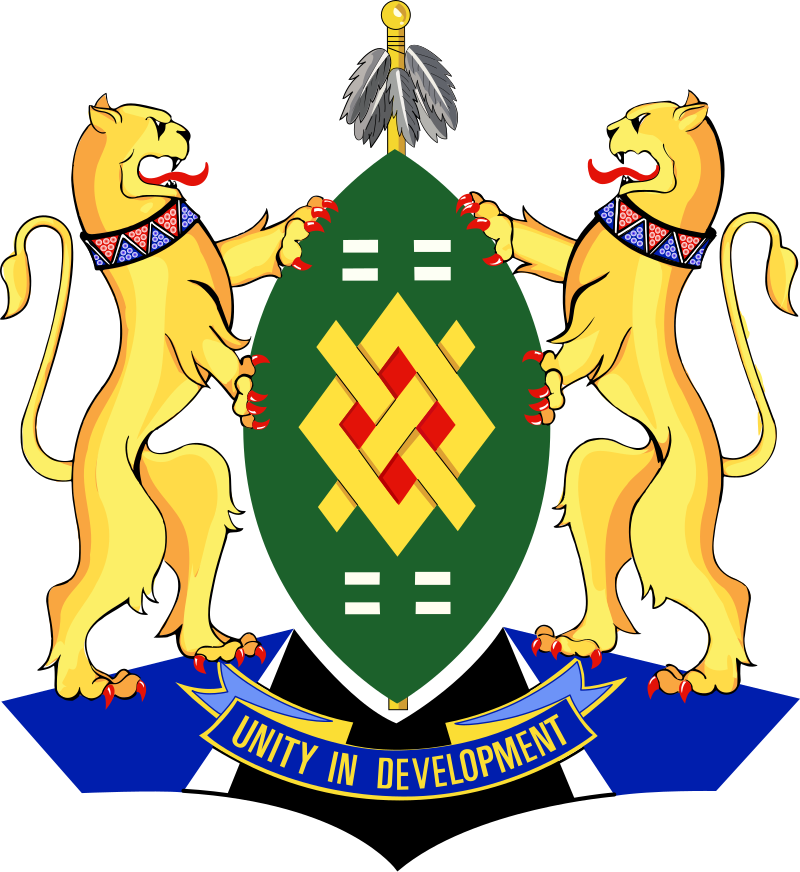
The Johannesburg coat of arms features a shield with a gold mining scene and a red lion, symbolising strength and the city’s mining heritage.
Languages
English (Zulu, Afrikaans, and many others widely spoken)
Currency
South African Rand (ZAR )
Avg. Temperatures
Summer (Nov – Feb): 25 °C (77 °F)
Autumn (Mar – May): 20 °C (68 °F)
Winter (Jun – Aug): 11 °C (52 °F)
Spring (Sep – Oct): 18 °C (64 °F)
Getting To Johannesburg
By Air
Johannesburg is served primarily by O. R. Tambo International Airport (JNB), the busiest airport in Africa. Located about 22 km northeast of the city centre, travellers can reach Sandton, Rosebank, or downtown via Gautrain, taxis, or private transfers.
For domestic and regional flights, Lanseria International Airport (HLA) is a secondary option, located northwest of the city, offering a quieter alternative, particularly for regional connections.
By Road
Johannesburg is well connected by South Africa’s highway network, with the N1, N3, and N4 linking it to Cape Town, Durban, Pretoria, and Mpumalanga. Long-distance coaches such as Intercape and Greyhound also serve the city from neighbouring countries. Traffic into Johannesburg can be heavy at peak times, and travellers are advised to avoid night driving in rural areas and stick to toll routes for added safety on the move.
By Rail
Johannesburg is a major rail hub, with Shosholoza Meyl trains linking it to Cape Town, Durban, Port Elizabeth, and East London via comfortable long-distance routes, including overnight sleeper options. For business travellers, the Gautrain is the most practical choice. This is an efficient and modern rapid rail system connecting O. R. Tambo International Airport with key districts like Sandton, Rosebank, and Pretoria, avoiding city traffic.
Business Culture & Etiquette
Johannesburg is widely recognised as the commercial capital of Africa, home to the Johannesburg Stock Exchange (JSE), the largest on the continent and among the top 20 globally by market capitalisation. The city anchors South Africa’s economy, hosting the headquarters of leading banks, mining giants, professional services firms, and a growing number of tech startups, making it a thriving destination for international business.
Business culture in Johannesburg blends formal corporate standards with South Africa’s characteristic warmth and friendliness. Meetings typically begin with polite greetings and handshakes, and it is advisable to use professional titles such as “Mr.”, “Ms.”, or “Dr.” until invited to do otherwise. While English is the main language of business, the country’s diversity is reflected in its workplaces, where cultural awareness and respect are highly valued. Relationship-building is central, and taking the time to engage in small talk before diving into business is often appreciated.
Dress codes in Johannesburg are generally formal, particularly in sectors like finance, law, and government, where tailored suits and conservative colours are the norm. However, creative industries, media, and technology firms increasingly embrace smart-casual attire, especially in trendier hubs like Maboneng and Rosebank. Punctuality is important, though meetings may not always begin on time, so patience and flexibility can go a long way in establishing positive business relationships.
A Few Other Business Etiquette Top Tips
- Respect cultural diversity: South Africa is a “rainbow nation” with 11 official languages and many cultural norms. Being aware of and sensitive to different customs, religions, and traditions is essential in professional interactions.
- Business lunches and dinners are common: Wait for the host to start eating, keep your phone off the table, and avoid discussing business until after some initial conversation.
- Exchanging business cards is common: Present your card with your right hand or both hands, and take a moment to look at the card you receive before putting it away.
Crime & Safety
Johannesburg faces numerous challenges related to crime and safety. While the city is beautiful and offers rich cultural experiences and economic opportunities, business travellers need to be aware of the security landscape. South Africa as a whole has one of the highest murder rates globally, with an estimated 27,000 murders reported in 2023, equating to approximately 45 per 100,000 people. Johannesburg, as a major metropolitan area, reflects this trend. Common crimes include housebreaking, home robbery, and theft of motor vehicles. In the 2022-23 period, about 1.6 million incidents of housebreaking and 238,000 home robberies were reported nationwide.
To reduce risk, travellers should prioritise well-secured accommodations, such as hotels or serviced apartments with 24-hour security. Using reputable taxi services or ride-hailing apps rather than public transportation, especially after dark, is strongly recommended. Visitors should also research and stay informed about neighborhoods with higher crime rates to avoid potential danger.
Private security is a prominent feature of life in Johannesburg, with South Africa boasting one of the world’s largest private security industries, employing over 2.7 million personnel. Many residents and businesses rely on private firms for patrols and emergency response. While Johannesburg presents certain safety challenges, informed precautions and careful planning can ensure a secure and productive visit. Staying aware of your surroundings, using trusted resources, and taking practical safety measures can make a significant difference in navigating the city safely.
A Few Other Crime & Safety Tips
- The emergency number for South Africa is 112. 10111 is also a national police and general emergency number. Use for crimes in progress, serious threats, or any situation requiring immediate police response.
- Street robberies are common in busy areas, especially around taxi ranks and shopping districts. Avoid using your phone openly on the street. Step into a shop or safe space if you need to make a call or check directions.
- When using taxis or ride-hailing apps, confirm the driver’s details before getting in. Avoid informal or unmarked taxis, especially at night. If possible, share your trip details with a trusted contact.
Getting Around Johannesburg
By Bus
The city’s official Rea Vaya Bus Rapid Transit (BRT) system, which connects key areas such as Soweto, Braamfontein, Sandton, and the Johannesburg CBD. The buses run on dedicated lanes, making them faster than regular traffic during peak hours.
By Train
The Gautrain is the city’s safest and most reliable rail option, linking Johannesburg with Pretoria, Sandton, Rosebank, and O.R. Tambo International Airport. Travellers will need a Gautrain Gold Card (a reloadable smart card) to access the system, which you can top up with cash or credit at stations.
Ride-Hailing
Services like Uber and Bolt are the most popular way to get around if you don’t have a car. They’re widely available across Johannesburg, including at airports and shopping centres. Prices are higher during peak hours or in high-demand zones, but they remain affordable compared to metered taxis.
Top 3 Things To See Or Do In Johannesburg
If you find yourself with a bit of free time on your business trip, Johannesburg is a city with a rich history and offers plenty to see and do. Here are our top 3 recommendations…
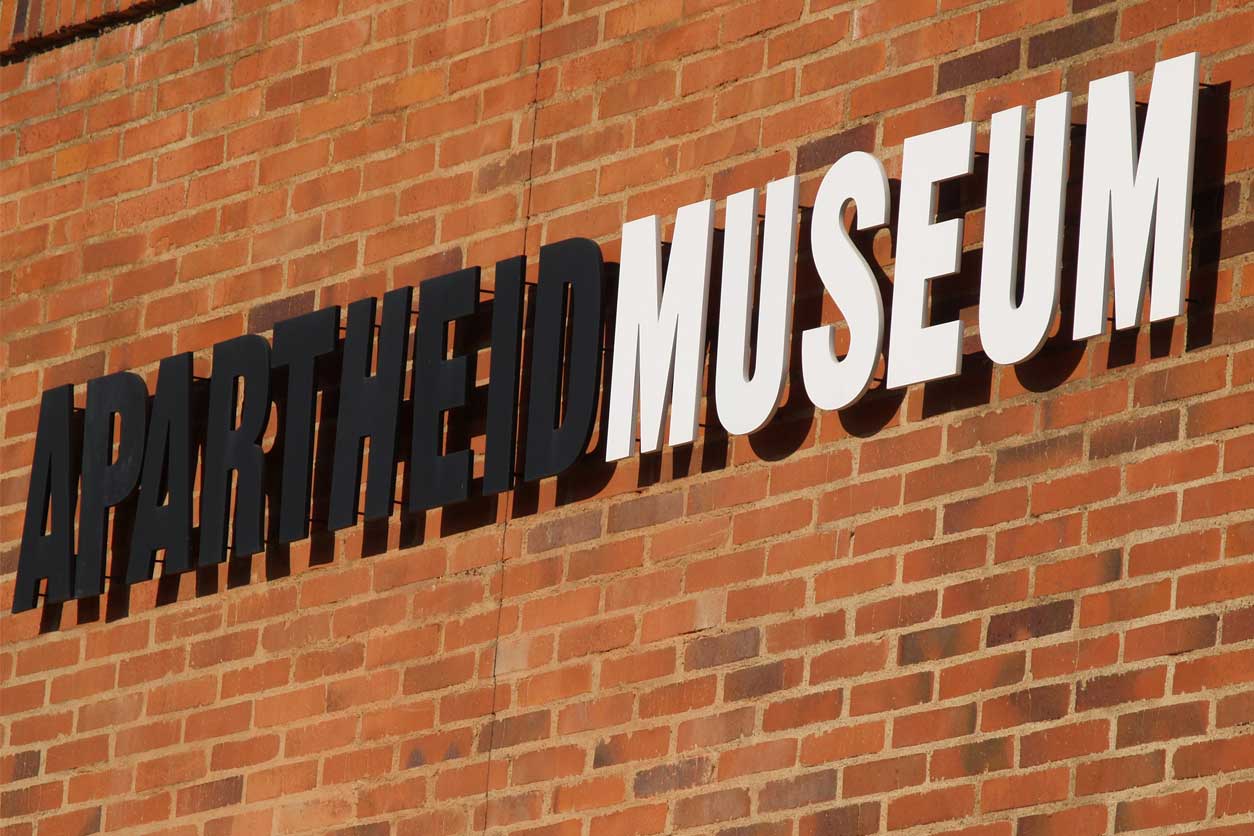
1. Apartheid Museum
Located near Gold Reef City, the Apartheid Museum is one of Johannesburg’s most important and thought-provoking attractions, offering a deep dive into South Africa’s turbulent past and its transition to democracy. Opened in 2001, the museum uses a mix of powerful photography, film, artifacts, and personal stories to illustrate the rise and fall of apartheid.
When you enter, visitors are randomly assigned a ticket marked either “White” or “Non-White,” forcing you to experience the divided entrances, a striking reminder of how segregation once shaped everyday life. Inside, the exhibits take you chronologically through South Africa’s history: from the early days of racial segregation, through the harsh realities of apartheid laws, to the liberation struggle and Nelson Mandela’s release in 1990.
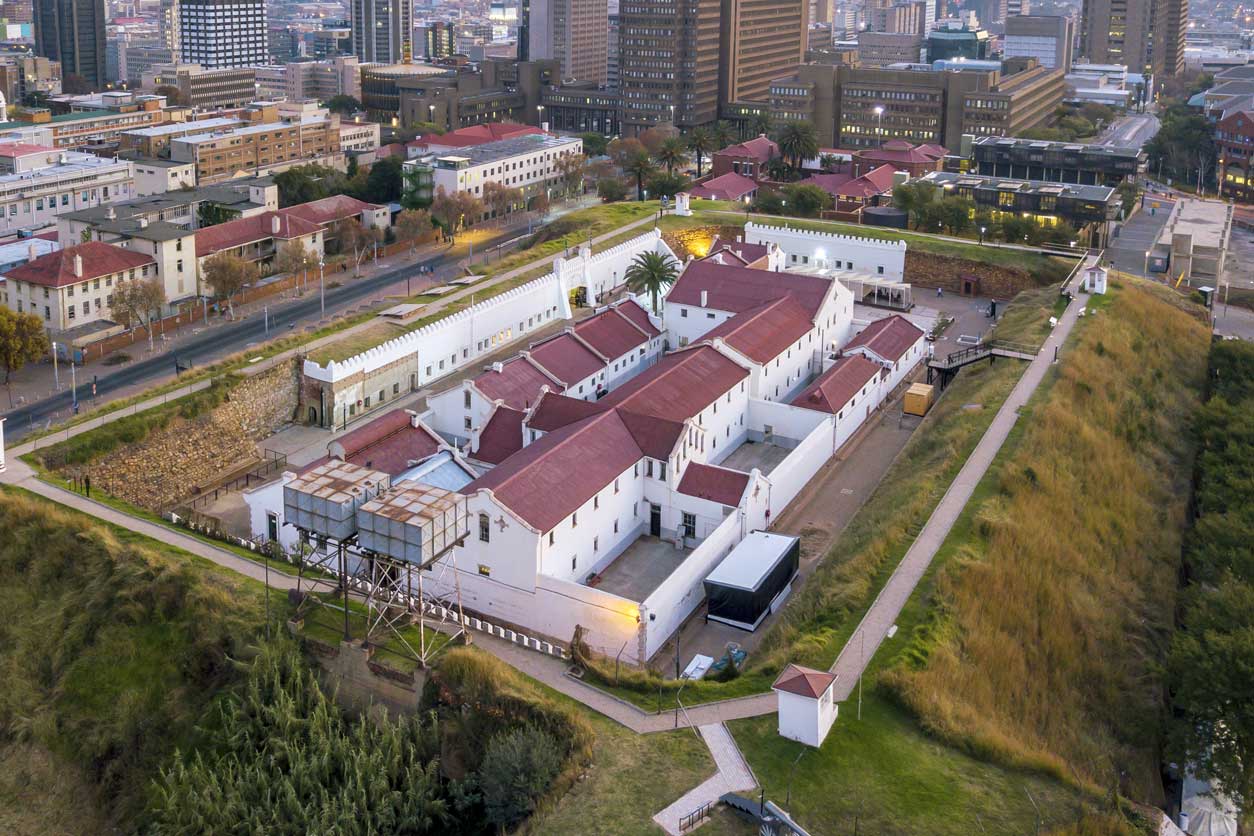
2. Constitution Hill
Constitution Hill is one of Johannesburg’s most significant heritage sites, combining a painful past with a hopeful present. Once a notorious prison complex, it held thousands of people under oppressive laws, from ordinary men and women to political activists like Nelson Mandela, Mahatma Gandhi, and Albertina Sisulu. Today, the site has been transformed into the home of South Africa’s Constitutional Court, the highest court in the land, and a symbol of justice and democracy.
Visitors can join guided tours to explore the Old Fort Prison, the Women’s Jail, and Number Four – a section infamous for its harsh treatment of Black prisoners during apartheid. The preserved cells, personal accounts, and exhibitions provide a powerful insight into the realities of life under the apartheid system.
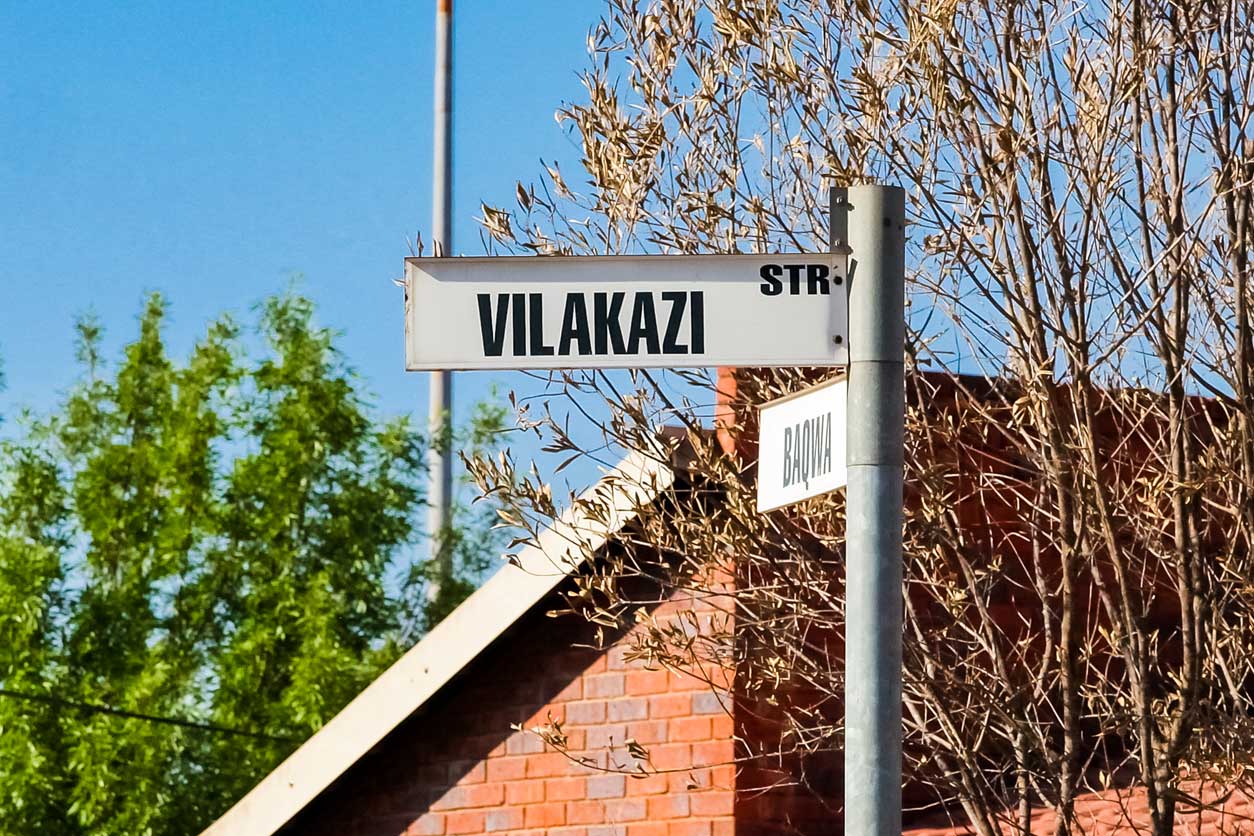
3. Soweto and Vilakazi Street
Soweto (South Western Townships) is one of Johannesburg’s most famous and culturally rich townships, offering visitors a mix of history, vibrant street life, and local experiences. It became internationally known during the anti-apartheid struggle, particularly the 1976 student uprisings. Today, it’s a place where you can explore South Africa’s history, meet locals, and enjoy food, music, and art.
Vilakazi Street is the standout attraction in Soweto, the only street in the world that has housed two Nobel Peace Prize winners, Nelson Mandela and Desmond Tutu. Visitors can tour Mandela House, where Mandela lived before his imprisonment; it’s been preserved as a museum with photos, furniture, and memorabilia from his life. The street itself is lively, with cafes, small restaurants, souvenir shops, and street vendors, making it a great place to experience local culture.
Making the Most of Johannesburg, the Economic Heartbeat of South Africa
Johannesburg is more than just one of South Africa’s (and the wider African continent’s) economic powerhouses; it’s a historic city where the past and present coexist. For business travellers, the city offers modern office environments, efficient transport links like the Gautrain, and a thriving hospitality scene that caters to conferences, meetings, and corporate networking. But Johannesburg is also a city that rewards curiosity: walking the historic grounds of Constitution Hill, or visiting the vibrant streets of Soweto, adds cultural depth to any professional trip.
Navigating Johannesburg successfully means balancing professionalism with awareness, knowing the local business etiquette, planning safe and efficient travel, and embracing the energy of a city that never quite slows down. In doing so, your trip transforms from a simple business engagement into an immersive experience, leaving you not only with professional gains but also a deeper understanding of a city that has shaped and continues to shape South Africa’s future.
City Guides
London: A Business Traveller’s Guide
Are you planning on travelling to London for work? From the skyscrapers of Canary Wharf to the bustling high-street shops of Oxford Street, there’s no shortage of opportunities for corporate travellers. In this city guide, we help you navigate London’s unique business ecosystem, share practical tips for getting around, and highlight our top 3 things to see or do to make your trip unforgettable.
Milan: A Business Traveller’s Guide
Considered by many as one of the fashion capitals of the world – unsurprising when you consider it’s home to luxury brands including Prada, Armani, and Dolce & Gabbana – it can be easy to overlook Milan as just a place for those in the business of clothes and catwalks. In this comprehensive guide for business travellers, we help you navigate Milan’s unique business ecosystem, share practical tips for getting around, and highlight our top 3 things to see or do to make your trip unforgettable.
Auckland: A Business Traveller’s Guide
Known as Tāmaki Makaurau (‘Tāmaki desired by many’) in the nation’s indigenous Māori language, Auckland sits on the pointed tip of New Zealand’s northern island, nestled between the Pacific Ocean and the Tasman Sea. Many of the world’s leading organisations with dealings in Oceania own an office in the Auckland Central Business District (CBD), particularly those invested in finance, commerce, and tourism – the largest markets in the area. In this comprehensive guide for business travellers, we help you navigate Auckland’s unique business ecosystem, share practical tips for getting around, and highlight our top 3 things to see or do to make your trip unforgettable.
LET’S TALK
Fill in the form below and we’ll get back to you as soon as we can.


